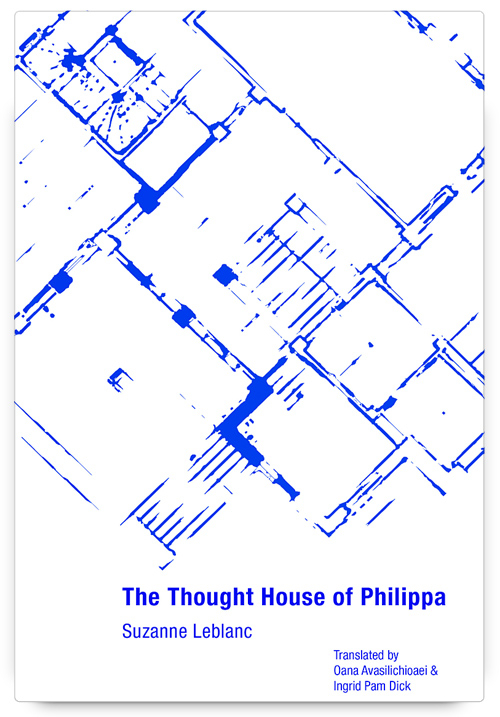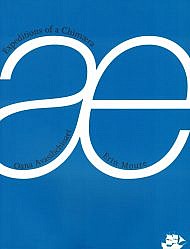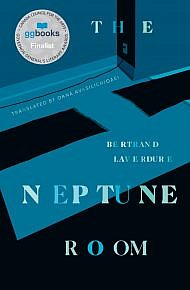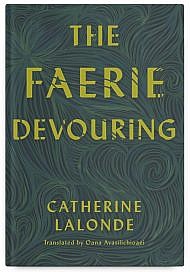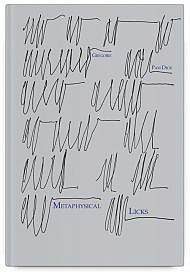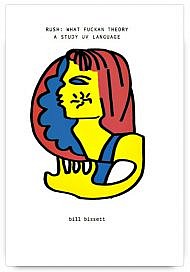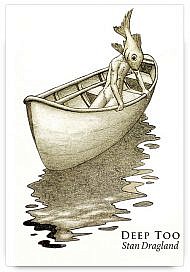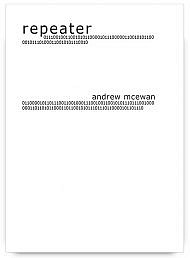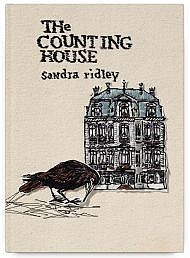49th Shelf Most Anticipated Spring 2015 Fiction Selection
Suzanne Leblanc’s The Thought House of Philippa transposes a theory of individuality into a stunningly reflective, sensuous, and frank philosophical novel. Setting the chapters in the various rooms of the house Ludwig Wittgenstein designed for his sister in Vienna, Leblanc’s novel builds an architectural foundation for the main character’s intensely emotional and intellectually acute way of seeing the world and her place in it. Prompted by an experience of isolation early in her life, “P.” (Philippa) moves towards the great world of others and nature—alienated from the everyday and yet devoted to a deeper connection—in an exploration that is profound and moving. Ideas crucial to Wittgenstein’s work—limit, freedom, interior and exterior, self and world—echo and shift in Leblanc’s precise, incantatory prose, propelled through the house’s architecture. The distinct voices of the novel’s four sections act as musical movements, constructed from repetition, variation and development of language, in alternating keys of austerity and splendour. The effect—a pure expression of the passion of clear thought, the adventure of solitude, and the beauty of uncompromising encounter—is utterly riveting. A sui generis experimental novel not to be missed.
Praise for The Thought House of Philippa:
“A unique and brilliant approach to the self, and to the intimate, as it creates and balances its own architecture of knowledge and emotion.” —Nicole Brossard
“Attempts to make art with philosophical concepts continue to be treated with suspicion amongst those who insist that art be born in a burst, not composed stone by stone from ideas. What allows Leblanc’s Thought House of Philippa to succeed on its own terms lies in the elucidation of the propositions of its most prominent referent (Wittgenstein), while at the same time scraping against them. The result, oddly enough, is a firm yet soothing music. This is no mean feat. Same too for Dick and Avasilichioaei, the poet/translators of this edition, who deliver to English minds a text where (to enter squarely into Wittgenstein—if one dares to!) ‘What can be said at all can be [and is] said clearly.'” —Michael Turner, author of Hard Core Logo
Reviews:
“Leblanc demands deep engagement but rewards in pure, surprisingly sensual, thought. A dense novel that challenges notions of what a novel can be.” —Jade Colbert for The Globe and Mail
“Like much of Wittgenstein’s own writing, The Thought House of Philippa is spare and, in many ways, open-ended, suggestive rather than absolute…It is an interesting work of fiction, the language and presentation seductive in the way Wittgenstein’s own work can be.” —M.A. Orthofer for The Complete Review
“Philippa is enigmatic, relevant, honest, and intuitive. Read her story.” —Brittany Natale for Nomadic Press
“The lucid translation by poets Oana Avasilichioae & Ingrid Pam Dick clearly honors and brings out the musicality and thought-space of Leblanc’s challenging, austere prose.” —Carla Harryman for Drunken Boat
“A novel of many ideas, Avasilichioaei and Dick’s translation keeps up with Leblanc’s ambitious emotional and didactic flourishes, while discovering in the abstraction of ‘discourse’ the most lovely music, making The Thought House of Philippa a singular, immersive, self-meditative experience.”—All Lit Up
❧
Suzanne Leblanc holds two PhD degrees, in philosophy (1983) and in visual arts (2004), and has been teaching since 2003 at the School of Visual Arts at the University of Laval (Quebec). She has exhibited multimedia installations in Quebec and has published theoretical works in Germany, France, Switzerland and Canada. Her research and creative work deal with philosophical forms inherent in artistic disciplines. She is currently leading a research-creation group on artistic strategies for the spatialization of knowledge. La maison à penser de P. (2010) is her first novel.
Oana Avasilichioaei’s previous translations include Universal Bureau of Copyrights by Bertrand Laverdure (BookThug 2014), Wigrum by Daniel Canty (2013), The Islands by poet Louise Cotnoir (2011), and Occupational Sickness by Romanian poet Nichita Stănescu (2006). In 2013, she edited a feature on Quebec French writing in translation for Aufgabe (New York). She has also played in the bounds of translation and creation in a poetic collaboration with Erín Moure in Expeditions of a Chimæra, (2009). Her most recent poetry collection is We, Beasts (2012; winner of the QWF’s A.M. Klein Prize for Poetry), and her audio work can be found on Pennsound. She lives in Montreal. Learn more about Avasilichioaei at www.oanalab.com.
Ingrid Pam Dick (a.k.a. Gregoire Pam Dick, Mina Pam Dick, Jake Pam Dick et al.) is the author of Metaphysical Licks (BookThug 2014) and Delinquent (2009). Her writing has appeared in BOMB, frieze, The Brooklyn Rail, Aufgabe, EOAGH, Fence, Matrix, Open Letter, Poetry Is Dead, and elsewhere. Her philosophical work has appeared in a collection published by the International Wittgenstein Symposium. Also an artist and translator, Dick lives in New York City, where she is currently doing work that makes out and off with Büchner, Wedekind, Walser, and Michaux.
Additional information
| Weight | .2 kg |
|---|---|
| Dimensions | 7.5 × 5 in |

